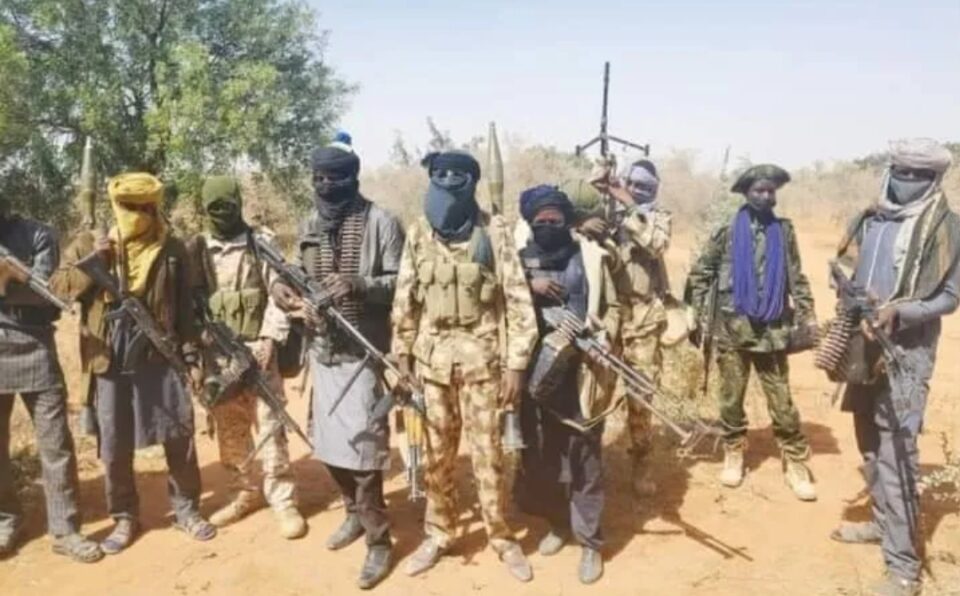Terrorism constitutes a global threat and Nigeria, unfortunately, is one of the countries that faces high level of terrorism. While attempts to combat terrorism and violent extremism in the North-East of Nigeria continue, policy attention has been shifted towards several sources of terrorism financing, which are believed to have continued to fuel terrorism and other violent conflicts in Nigeria.
Without any iota of doubt, terrorism financing is the backbone of terrorist groups as funds go into the purchase of weapons, recruiting militants, and operating terrorist cells. Just as the United Nations Office on Drugs and Crime (UNODC) puts it, “terrorist groups need money to sustain themselves and carry out terrorist acts”.
Terrorism financing in this context, encompasses the means and methods used by terrorist organizations to finance their activities, leveraging funds from legitimate sources such as business profits and charitable organizations, or from illegal activities, including trafficking in people, or kidnapping, weapons or drugs.
It is note worthy that poor governance and corruption drive terrorism and violent extremism, which are among causative factors observed in the North-East of Nigeria. Also, religious extremism, hard beliefs and ideologies held and taught by some religious leaders, have led to insurgency in the North-East.
The consequences of terrorism have continued to aggravate extreme poverty among Nigerians, internal displacement, devastated livelihoods, just as opportunities for broader growth, development and prosperity are destroyed.
The increasing concerns on financing terrorist activities within the country, have triggered unfavourable indices from the 2023 Global Terrorism Index (GTI), which ranks Nigeria eighth among the top-ten countries with the highest levels of terrorism flobally.
In March 2024, the federal government naming 15 entities, including nine individuals and six Bureau De Change operators and firms, among the key sources of terrorism financing, thus, highlighting pressing issues of terrorism and terrorist financing in the country.
As poor awareness at community levels hamper collective monitoring and timely response to warning signals of potential terrorist activities and violent extremism, the security situation in Nigeria has become increasingly complex and uncertain, as various non-state armed groups have emerged and consolidated coercive power to terrorize the population in several parts of Nigeria, as evident in the North-East.
Moreover, weak security and surveillance at national borders, contribute to fuel terrorism financing. This lack of control and monitoring allows terrorists, as well as small arms and light weapons, to infiltrate the country easily. This stresses the imperative of strengthening security measures at borders by Nigerian authorities to prevent the inflow of resources for terrorist activities.
It has been observed in recent engagements by the Civil Society Legislative Advocacy Centre financed by GIABA-ECOWAS, that poor collaboration on the part of law enforcement and regulatory agencies contributed to the problems of terrorist financing in Nigeria. Effective information sharing is therefore crucial in combating terrorism financing, yet, there seems to be a lack of coordination among security agencies and institutions.
More importantly, the capacity gap within law enforcement and regulatory agencies also hamper efforts to address terrorism financing challenges effectively. These institutions must be adequately equipped and trained to detect, disrupt and adjudicate on the financial networks of terrorist organisations.
The financial sector, has equally been discovered to have been exploited for terrorism financing. The use of financial sector indicate increasing capability of some terrorist groups. These include Bureau de Change operators, Point of Sale (POS) devices, wire transfers, and Designated Non-Financial Businesses and Professions, among other enabling platforms, expanding the scope and depth of the menace.
It is worrisome that illegal money exchange platforms, including Bureau De Change, have been featured in several Terrorism Financing investigations. The 2022 National Inherent Risk Assessment of Terrorism Financing report reveals that between 2019 and 2022, about 19 companies were linked to illegal money exchange operators who have used their companies to comingle funds considered to be linked to Terrorism Financing.
Furthermore, while the Banking sector in particular has in recent times been subjected to strict regulations that intend to increase transparency and identify suspicious transactions, however, studies illustrate that the sector has continued to offer opportunities for such illicot businesses, as current measures deployed by banks have proved ineffective due to the knowledge gap that surround complicated methods terrorism financiers employ.
There is therefore the urgent need to critically come up with more enduring systems and procedures for identifying, curbing and tacking the menace before it consumes the entire country. There is no sector that requires greater attention than the war on terrorism. Given what happened since 1999, and the rate the country is fast degenerating to the flip of terrorists, the need for more transparency, greater dedication and progressive combat of terrorist activities is imperative, otherwise, the country will remain under the frip of terrists which will be most unfortunate, especially given the finances already deployed to combat the menace.
.



